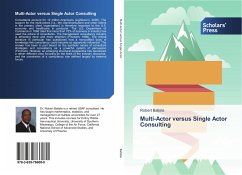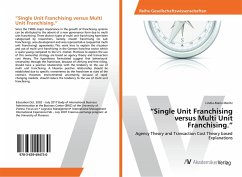Consultants account for 12 million Americans (Lightbourn, 2006). The support for the multi-actors (i.e., the client/consultant and other clients in the primary client organization) is therefore important to the U.S. economy and healthcare in particular. The U.S. Department of Commerce in 1998 cited that more than 70% of business in industry has used the advice of consultants. The management consultancy industry is attracting more and more attention (Fincham, 1999). The critical literature in particular has questioned how a noncodified body of knowledge like consultancy could become so apparently influential. The answer has been in part based on the symbolic nature of consultant strategies and consultancy as a powerful system of persuasion (Fincham). However, an emerging structural perspective has developed a rather different view, focusing on the limits of the industry discourse, and the constraints of a consultancy role defined largely by external forces.








